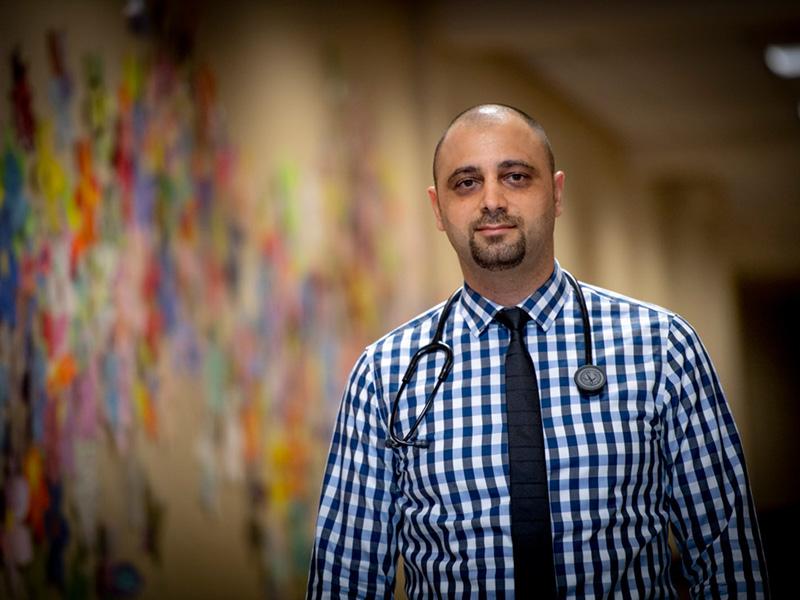Clinical trial to test effectiveness of drug in treating cancer patients with severe COVID-19
"Cancer patients are at higher risk of developing severe complications from COVID-19," said Nakhle Saba, MD, associate professor of clinical medicine at Tulane School of Medicine. "Data from the USA show that approximately 40% of COVID-19 patients with cancer required hospitalization, 20% developed severe respiratory illness, and 12% died within 30 days."
Despite this fact, cancer patients are often excluded from participating in clinical research trials for experimental COVID-19 treatments. This is due to a variety of factors in addition to their cancer diagnoses, including poor performance status and physiologic reserves (liver/kidney function, etc.) or the fact that they're taking cancer medications that prohibit them from being enrolled in trials.
"There is no standard of care or yet proven therapy for these patients, except remdesivir, which won't be widely available for some time, so trials are critically important to this population," said Saba.
In an effort to address this unmet need, Tulane has joined other institutions across the globe in a phase 1/2, double-blinded, placebo-controlled trial of the drug TL-895 to treat severe COVID-19 in hospitalized cancer patients.
TL-895 belongs to a relatively new drug class known as Bruton’s Tyrosine Kinase (BTK) inhibitors, which block a critical pathway within B-lymphocytes, the B-cell receptor pathway. Additionally, TL-895 inhibits bone marrow kinase (BMX), which plays a key role in NF-κB activation and the induction of pro-inflammatory cytokines, including IL-1β, IL-6, IL-8 and TNF-α. The same class of drugs is currently being used as a treatment for some leukemias and lymphomas. They are orally bio-available and overall well tolerated, including in older patients.
“Immune dysregulation in some COVID-19 patients, including patients with cancer, can result in an uncontrolled inflammatory response with subsequent lung damage and multi-organ failure,” said Saba. "Immune dysregulation doesn’t necessarily mean a weakened immune system; it could mean a dysfunctional immune system that's lacking some vital function that orchestrates the optimal response against the virus. A 'too much' reaction from the immune system can be devastating."
TL-895 is not an anti-viral and will not attack the virus itself, according to Saba. The goal instead is to test whether the study drug can re-modulate the immune system, making it more efficient in clearing the virus while also decreasing the destructive inflammation the immune response is causing.
"The idea here is if you inhibit BTK and BMX you can reverse, at least in part, the inflammatory effect of the virus, especially in the lungs," said Saba.
This two-part trial is open to all hospitalized cancer patients with COVID-19, no matter the type of cancer. In part one, there is no placebo. All study participants will receive the study drug in different doses to see which is safest to proceed to part two. In part two, the recommended dosage from part one will be studied compared to placebo, with some patients receiving the study drug and others not.
TL-895 is a pill taken twice daily in seven-day cycles. Unlike remdesivir or convalescent plasma, which are given intravenously, the patient can continue treatment orally at home if they improve to the point of being discharged from the hospital. "The beauty of this trial is that it does not exclude other approved or most commonly used therapies for COVID-19," said Saba. "For instance, the patients could be enrolled in this trial and also receive COVID-19 convalescent plasma, remdesivir and dexamethasone as treatments for COVID-19 at the same time."
Although Saba has high hopes the drug will be very well tolerated, this drug class has been known to cause bleeding, atrial fibrillation, diarrhea, skin rash, and musculoskeletal issues in some patients.
For more information, please contact Elise Tatje, senior clinical research coordinator, at (504) 988-2987 or etatje@tulane.edu.

